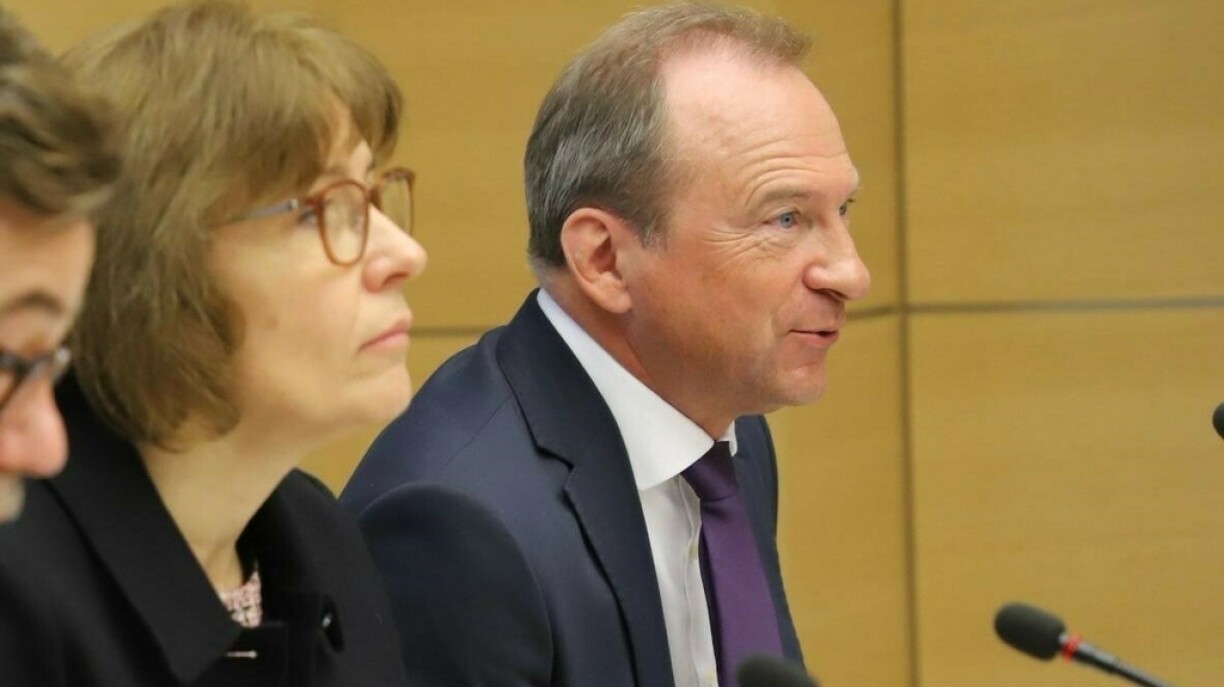
Despite an increase of almost 7% in state revenues, a surge in expenditure, largely attributed to tripartite measures, the energy crisis, inflation and the lingering effects of the Covid-19 crisis, is driving the nation toward a substantial budgetary shortfall.
On Tuesday, the provisional central government deficit as of 31 December 2023 was presented to members of the Finance and Budget Control Committees. Roth emphasised that additional expenditures during a “complementary” period until April 2024 would likely escalate the deficit further.
Acknowledging the challenges, Roth urged a “delicate” and “intelligent” approach to managing the revenue-expenditure gap, cautioning that further fiscal adjustments might be necessary in 2025, 2026, and 2027.
Despite the fiscal strain, Roth ruled out the possibility of tax hikes or scaling back essential investments. Instead, he proposed curbing spending “elsewhere” and increasing efficiency through digitalisation. The Minister affirmed his commitment to maintaining Luxembourg’s “Triple A” status and ensuring continued attractiveness for citizens and businesses.
With the forthcoming presentation of the 2024 budget at the end of March, the government faces added complexity due to the crisis in the construction sector. Roth anticipates a significant impact on the budget, prompting the consideration of a package of measures in the coming weeks. Highlighting the decline in revenue from property transactions, he advocates for “courageous decisions” to revitalise the housing construction sector and prevent a surge in business failures and unemployment.
The fiscal challenges facing Luxembourg are further underscored by a crisis that aligns with earlier forecasts for revenues collected by the Registration Duties, Estates, and VAT Authority. The troubling state of the construction sector and a notable decline in property transactions have led income from registration fees to plummet by €252.9 million below the original budget approved by the Chamber of Deputies.
The financial markets and interest rate fluctuations have contributed to a decline in subscription tax revenues of €81.8 million, with VAT revenues only reaching 94.9% of the approved budget.
The situation is different regarding revenue from companies. Corporate income tax witnessed a significant increase of €313.3 million, while income from capital tax rose by €222.3 million compared to 2022.
Personal income tax revenues have exceeded the voted budget by 119.3%, and tax on wages and salaries has reached 98.9% of the approved budget.
MP Franz Fayot from the Luxembourg Socialist Workers’ Party (LSAP) raised questions about how the new government plans to address spending cuts. Fayot warns that expenditures such as state salaries cannot simply be “compressed,” emphasising the current “extraordinary time” marked by the energy transition and the fight against inequality.
MPs Sam Tanson of the Green Party (déi Gréng) and David Wagner from the Left Party (déi Lénk) expressed a preference for tax increases, specifically targeting large incomes or companies with minimal tax contributions, as suggested by Tanson. Wagner highlighted dividends as an example, which are partially exempt from tax in Luxembourg.
On the other hand, MP Sven Clement from the Pirate Party argued that with rising tax revenues, the focus should be on addressing expenditures.
MP Fred Keup from the Alternative Democratic Reform Party (adr) stated that the public should be aware where Luxembourg’s revenues come from, specifically from the “financial centre and fuel tourism.” Keup asserted that Luxembourg must defend its economic “niches” to maintain financial stability.